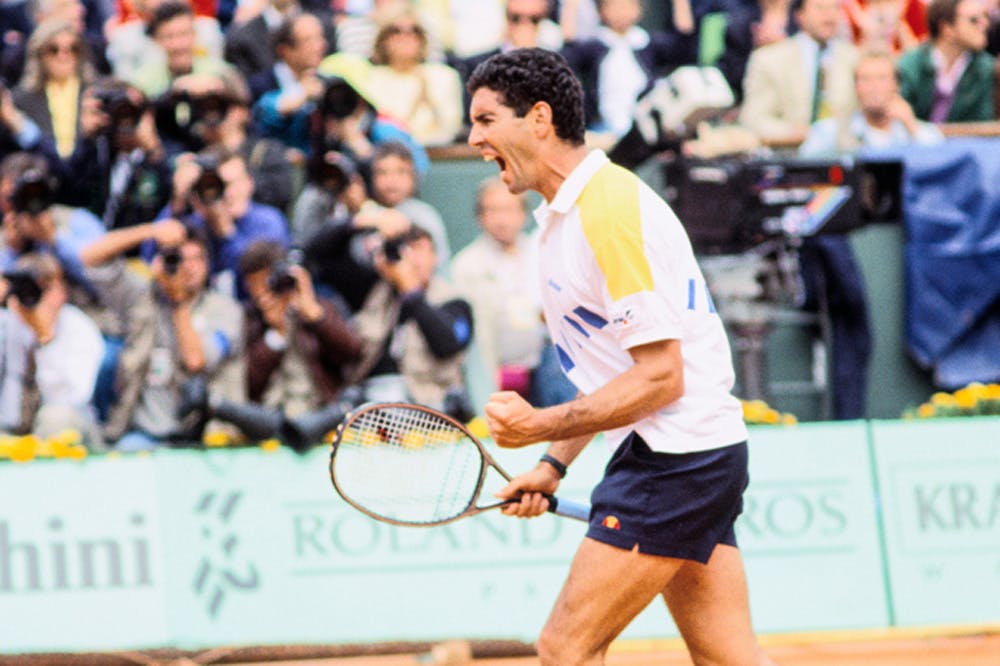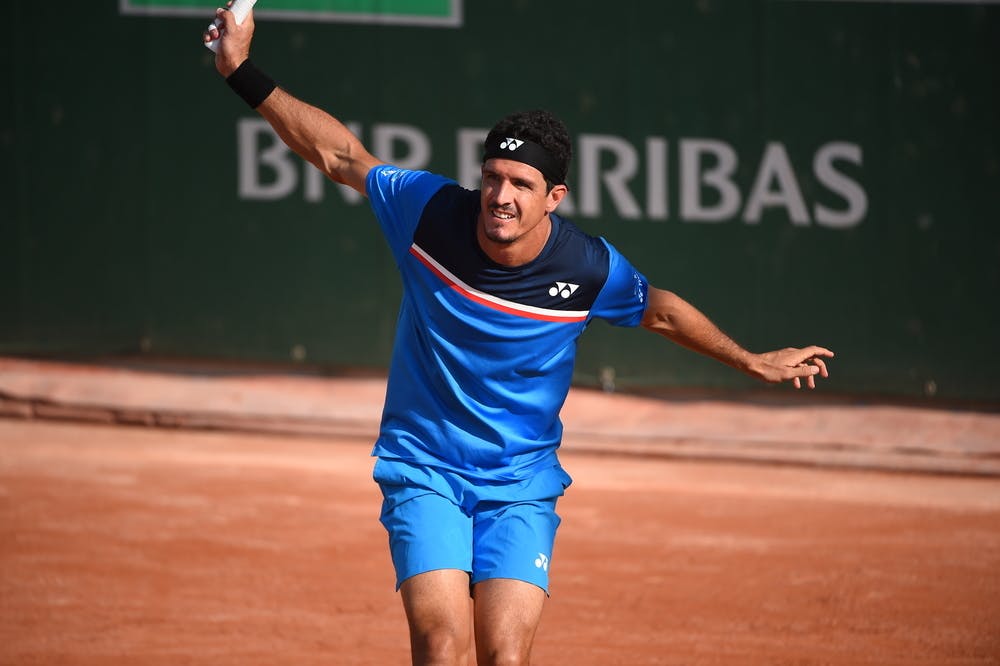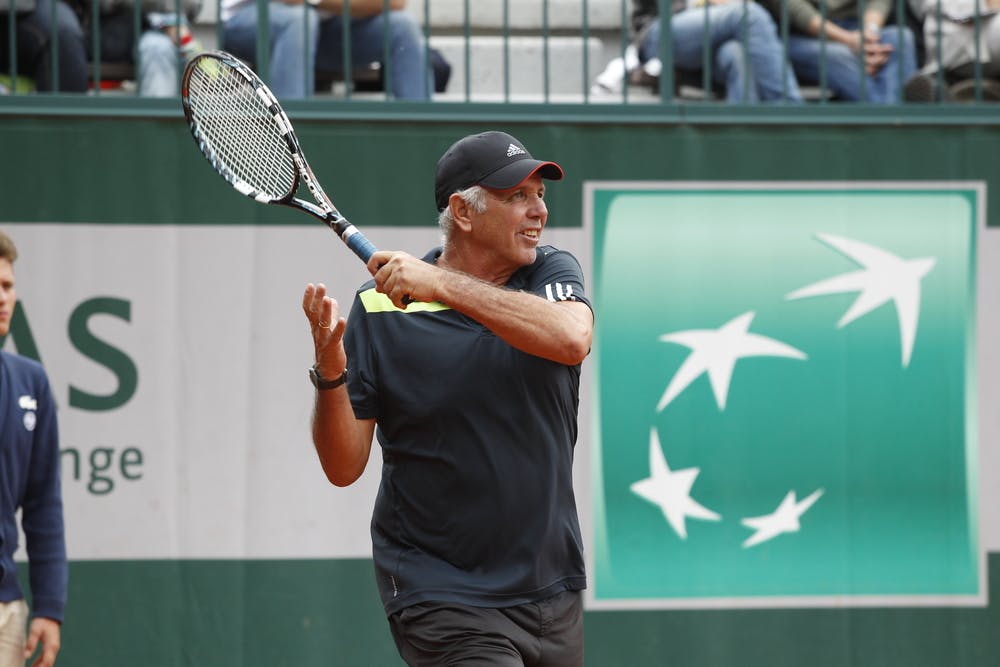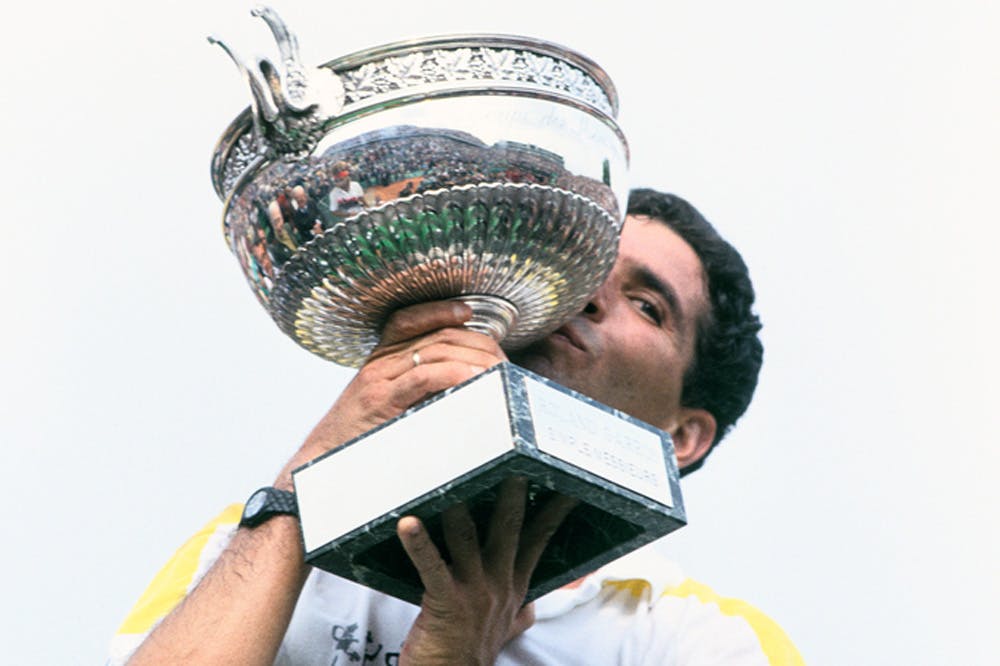It’s fitting that Emilio’s biggest success as a professional would happen at the place where his father solidified his legacy as one of the greatest Ecuadorian sportsmen of all time.
Family also played a starring role during Gomez’s post-match celebration on Court Philippe-Chatrier, moments after he defeated Andre Agassi in four sets in the 1990 final.
After clinching the 6-3, 2-6, 6-4, 6-4 triumph over the American, Gomez sprinted out of the stadium, only to emerge in the crowd next to his wife with his baby Juan-Andres in his arms. Call it serendipity: Gomez says an alert woman from the tournament’s nursery staff was ready to hand off the child as he made his way past.
“It’s not that I went looking for him [Juan-Andres], it’s kind of like he came looking for me, and that was a great move by her because that was a very nice moment for a player and a very nice moment for a family,” he said. “Family, it’s always been there—good times, bad times.”
Juan-Andres, two years old at the time, doesn’t remember a thing about the moment, but when he watches the video he can’t help but well up with emotions.
“Oh my god the emotions are next-level,” he told rolandgarros.com. “I’m just super grateful for what he did, so happy for him and so happy for Ecuador.”
 ROLAND-GARROS
19 May - 8 June 2025
ROLAND-GARROS
19 May - 8 June 2025



 © Liliane Chedikian/FFT
© Liliane Chedikian/FFT
 © Corinne Dubreuil/FFT
© Corinne Dubreuil/FFT © Cédric Lecocq/FFT
© Cédric Lecocq/FFT © Liliane Chedikian/FFT
© Liliane Chedikian/FFT